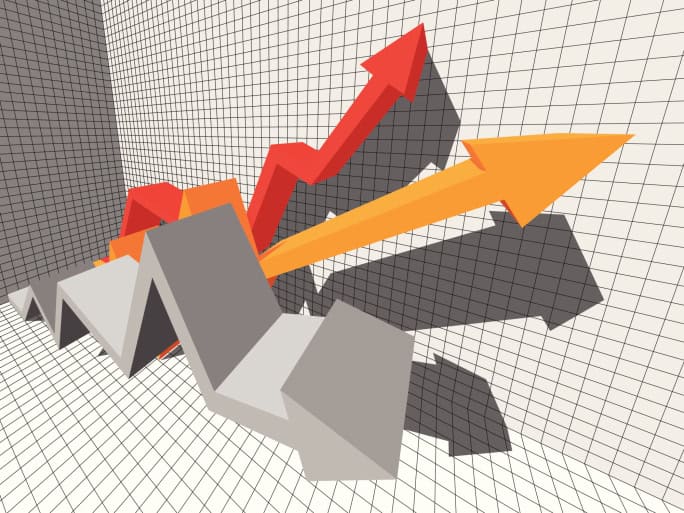 UK inflation fell into negative territory in September.
UK inflation fell into negative territory in September.
According to the latest official figures, as measured by the Consumer Prices Index, inflation in September dropped to -0.1 percent, down from 0 percent in August.
The main reason that deflation is back is because of the smaller than expected increase in clothing prices and fuel prices, the Office for National Statistics said.
In the year to September food prices have dropped 2.5%. The reason for this is that retailers across the country have been aggressively cutting costs amid the supermarket price war which was sparked by the surging popularity of discount chains such as Aldi and Lidl.
Meanwhile, petrol prices have dropped by 3.7p per litre over the year – down to an almost six year low.
The drop into negative territory means that the Bank of England does not face as much pressure to increase interest rates.
Howard Archer, of IHS Global Insight, said: “Deflation of 0.1% in September will undoubtedly fuel market expectations that the Bank of England will not be raising interest rates before the latter months of 2016, and could very well hold fire until 2017.
“Further reason for Bank of England caution on interest rates is the recent evidence that the economy hit a soft patch during the third quarter with GDP growth likely to have been no better than 0.5% quarter-on-quarter following expansion of 0.7% in the second quarter.”
David Kern, Chief Economist at the British Chambers of Commerce, said: “Low inflation boosts disposable income and supports living standards, thus helping the economic recovery.
“However recent trade and manufacturing figures have been disappointing, and ongoing global uncertainties, especially in the emerging markets, reinforce our view that the recovery is fragile, and no risks should be taken. With inflation unlikely to rise in the short term, the MPC should keep rates at the current low level until well into 2016.”
He added: ”Our forecast is that annual CPI inflation will start to creep upwards early in 2016, but will remain below the 2% target well into 2017.”
Chancellor George Osborne said on Twitter: “Inflation at minus 0.1% while wages rising at fastest rate in over a decade is a real boost for budgets of working families.”
Mr Osborne added: “We shouldn’t mistake this for damaging deflation: we remain vigilant and our system is designed to deal with such risks.”

